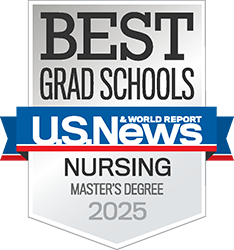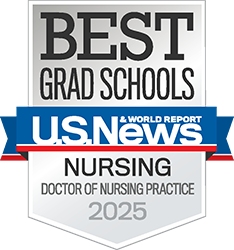New Nurse Practitioner Traineeships $2.6 million, 4-year federal grant funds 25 annually


More than half of Texas counties are designated as medically underserved areas, and a new federal grant will enable Cizik School of Nursing to prepare more nurse practitioners to provide primary and mental health care in communities where it is needed most.
The four-year, $2.6 million grant from the Health Resources and Services Administration (HRSA) of the U.S. Department of Health and Human Services will provide financial support to 25 nurse practitioner students annually. The award also will enable the school to expand curriculum, strengthen academic-clinical partnerships in underserved rural and urban areas, and provide professional development for preceptors and faculty.
“Many health departments and clinics in underserved areas were not able to host our students during the pandemic,” said project director and Associate Dean for Graduate Studies Susan Ruppert, PhD, FNP-C, ANP-BC, FAAN. “Under normal circumstances, a large proportion of our students would go to work in such settings, but fewer have done so since 2021. This grant will give us the resources to support our students, clinical partners, and faculty to expand access to health care for these underserved populations.”
The goal of the project, “Augmenting Teaching and Learning for APRN Student Primary Care Training (AT LAST),” is to increase the number of nurse practitioners prepared to provide primary, mental health, and substance use disorder care in medically underserved areas. Efforts will focus primarily on the nine counties within the Houston metropolitan area and secondarily on rural areas throughout Texas.
“Houston is the fourth largest city in the nation, and there are many underserved and under-resourced communities within Harris County. Furthermore, as soon as you step over the county line and lose access to the Harris Health System, resources drop considerably,” said Ruppert.
Features of the AT LAST project include:
- incorporating the newly developed “Vulnerable Populations” course into the Doctor of Nursing Practice (DNP) curriculum,
- providing clinical immersion experiences in underserved primary care settings for 360 of the 1,020 clinical hours required for the DNP program,
- developing faculty workshops and online continuing professional development activities, including courses that can prepare faculty, preceptors, and other advanced practice nurses to take exams to become a Certified Rural Health Clinic Professional (CRHCP) or a Certified Addictions Registered Nurse-Advanced Practice, and
- establishing an advisory council comprising faculty leadership and academic-clinical partners.
Faculty and staff worked long hours to develop a compelling grant proposal during a short response window. Contributors included project co-directors Kathleen L. Siders, DNP, RN, FNP-C, and Latarsha S. Cheatham, DNP, RN, FNP-BC, co-directors of the DNP program; family nurse practitioner (FNP) track coordinator Kala A. Christopherson, DNP, RN, FNP-C; psychiatric/mental health nurse practitioner (PMHNP) track coordinator Kelly D. Kearney, DNP, RN, PMHNP-BC; and adult/gerontology primary care nurse practitioner (AGPCNP) track coordinator LaDawna Goering, DNP, RN, ANP-BC, ADM.
“The HRSA award is a wonderful opportunity for the school and our nurse practitioner students,” said Dean Diane Santa Maria, DrPH, MSN, PHNA-BC, ACRN, FAAN. “All the credit and congratulations go to the amazing team who pulled out all the stops to secure this grant.”
The award will fund traineeships and stipends for eight full-time and 17 part-time student trainees annually in the FNP, PMHNP, and AGPCNP tracks of the DNP program who are interested in working in rural/urban underserved areas. Full-time students may apply during their first or subsequent semesters, with awards granted the following semester.
Part-time students may apply prior to the last 12 months of the program to receive financial support as they complete their clinical requirements. The first round was awarded for the Fall 2023 semester.
“We live in the most diverse city in the nation and work in the Texas Medical Center, which is home to some of the most advanced and innovative health care resources in the world. However, a fifth of Harris County residents do not have health insurance, and language and cultural barriers can also limit access to care,” Santa Maria said. “This HRSA award will prepare our DNP students to help fill growing health care gaps in Southeast Texas and across the state.”
The need by the numbers:
254 counties in Texas
130 Texas counties designated as medically underserved
172 Texas counties designated rural
211 Texas counties without an advanced practice psychiatric/mental health nurse
Sources: Texas Department of State Health Services and HRSA



